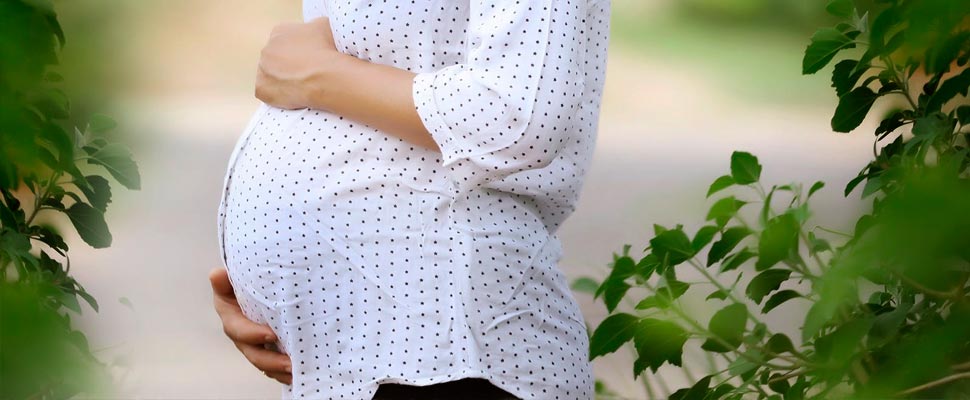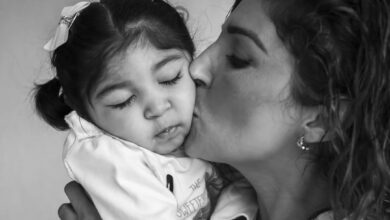What role does motherhood play in climate change?
In the midst of a global climate crisis, motherhood is being reconsidered in different ways.

The idea of reproduction is changing and, likewise, the way in which motherhood is thought about. Photo: Pexels
LatinAmerican Post | Vanesa López Romero
Listen to this article
Leer en español: ¿Qué papel juega la maternidad en el cambio climático?
It is no secret that as a species we are going through an extremely difficult time when it comes to the environment. According to the United Nations Environment Program (UNEP) there are three environmental crises that we are experiencing: climate, biodiversity, and pollution. Likewise, the organization affirms that it is impossible to think about a future for our species if these three are not addressed together, at a global level, from all social spheres, and in a sustainable way.
These three crises are directly related to the CO2 emissions produced collectively by all the inhabitants of our planet, and these emissions have their origin in two key factors: overpopulation and economic and industrial growth. In the case of overpopulation, a disturbing question arises: how good is it to have children in a world that needs fewer human beings? And of course, this question leads to a much more controversial one: should reproduction be regulated in order to lower the level of overpopulation and thus curb climate change?
These two questions can be shocking, but the truth is that the idea of reproduction is changing and, likewise, the way in which motherhood is thought. Therefore, it is worth asking ourselves: ¿What is the role of motherhood in climate change?
The Birth strike
In recent years we have seen an increase in childfree people under 35 years of age. Movements have been created that seek to recognize the need to stop reproducing ourselves. One of them is Birth Strike, created in 2019 by Blythe Pepino and Alicia Brown as a result of a comment made by the then president of the United States House of Representatives, Paul Ryan, in which he urged American women to have more children so that the workforce does not age and the economy does not stagnate.
For Pepino and Brown, the Birth Strike means that women, who in the end are the ones who gestate a new life in their body, can make a decision about their body without neglecting the crises that we are going through as a society. Renouncing motherhood is, then, a political, social, and environmental claim for women and for the rest of future human beings.
According to the Birth Strike website, "The threat of ecological and civilization collapse is certain unless we rapidly transform ourselves into a just and global society. Our future and that of our children is at stake." In this vein, this movement does not seek simply to reduce overpopulation, but to prepare a sustainable and dignified future for the next generations.
Those who are fathers or mothers already show concern for the future
In November 2020, a survey was published by Yale-NUS College in which 96.5% of the people surveyed (between 27 and 45 years old) were "very" or "extremely concerned" about the well-being of their children ( current, expected or hypothetical) due to the environmental, social, economic and political effects that climate change brings. Also, 6% of respondents were "sorry" for being parents in the middle of the crisis. Here we can see the guilt that certain people may have for birthing a person who will have to face such serious crises that will cause a very slow and difficult development in different social and work environments.
Matthew Schneider-Mayerson, lead author of the study, affirmed that beyond the issue of childbearing one thing is clear: climate change causes stress and anxiety to people who are aware of the problem.
Also read: Points to understand the Health Reform in Colombia
How can motherhood be environmentally responsible?
With the passing of the years and the paradigm shift that a more mentally and socially progressive society supposes, motherhood has also changed. Wanting to influence the fight against climate change does not mean that you should stop having children, in fact, the environmentalist and feminist movements have made it more than clear that it is women who have to decide about their body and that consequently, they can decide whether to be a mom or not.
Now, motherhood is not reduced to biological reproduction, since adoption is an option that can be used if you want to be a mother but want to reduce collective consumption. We are in a moment in which the ways of performing our humanity are being questioned and changed, which sees adoption positively, and not as a taboo to which only people who cannot reproduce have access. Having the possibility of reproducing and wanting instead to adopt is also valid and should not be judged.
Likewise, if you decide to have biological children, raising them under a social responsibility with the environment is extremely useful and benevolent. If you grow sustainably, you live sustainably.
On the other hand, many pregnant women with children seek that the States legalize abortion and improve birth control. They seek to regulate the way in which we reproduce, not to prohibit childbirth, but to prepare a sustainable and dignified future for them and a present with hope for us.




